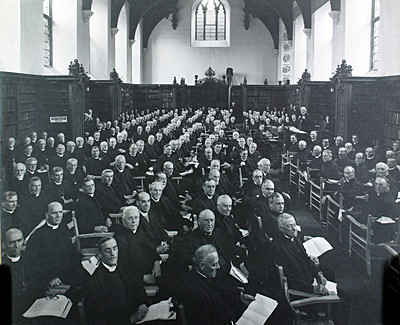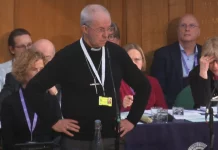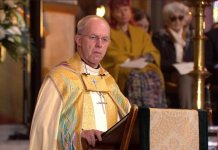Two crucial Anglican gatherings take place in the next few weeks. First in Rome (29 April to 2 May), a gathering of the Anglican Primates, called together by the Archbishop of Canterbury. Soon afterwards, in Cairo (11 to 15 June), a gathering of the Global South Fellowship of Anglican Churches, for their inaugural assembly. High on the agenda at both meetings will be the future structures of the Anglican Communion. But twelve Primates from the Global South Fellowship have already publicly rejected the current Archbishop of Canterbury, Justin Welby, as leader of the Communion. It remains to be seen whether any of these twelve will be present in Rome. Several younger Anglican provinces, like Chile (founded in 2018) and Alexandria (founded in 2020), have begun the process of deleting Canterbury from their constitutions. Other Global South provinces will soon follow suit.
Yet in our Anglican polity, to be “in communion with the See of Canterbury” is often viewed as an essential part of Anglican identity. For example, in the controversy over the failed “Anglican Covenant” proposals, the Church Times declared: “Communion with the see of Canterbury has always been the defining feature of what it means to be an Anglican”. Likewise, Paul Avis asserts in his popular textbook, The Identity of Anglicanism: Essentials of Anglican Ecclesiology (2008): “The litmus-test of membership of the Anglican Communion is to be in communion with the See of Canterbury.” Avis goes so far as to call it “the ultimate criterion”.
Almost a century ago, the 1930 Lambeth Conference include the phrase, “in communion with the See of Canterbury”, as part of its famous description of the Anglican Communion (Resolution 49). This idea has cascaded down the generations and still holds sway in the 2020s. But its origins and contested meaning are interrogated in a new article in the Spring 2024 edition of The Global Anglican, written by Andrew Atherstone, an Oxford historian and member of the Anglican Consultative Council (one of the four so-called “instruments of Communion”). He argues that our Anglican textbooks should be re-written, and that the time has come for Canterbury to be removed as the guardian of the entrance door to the Anglican Communion.
The whole article is free to download here.










